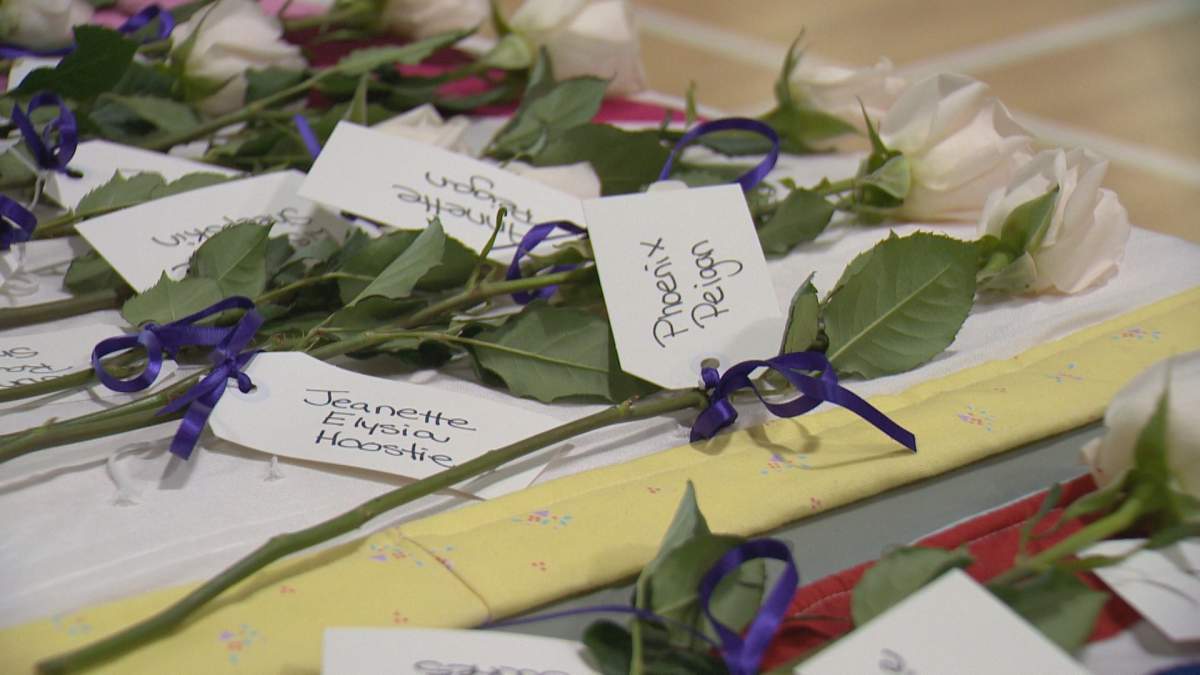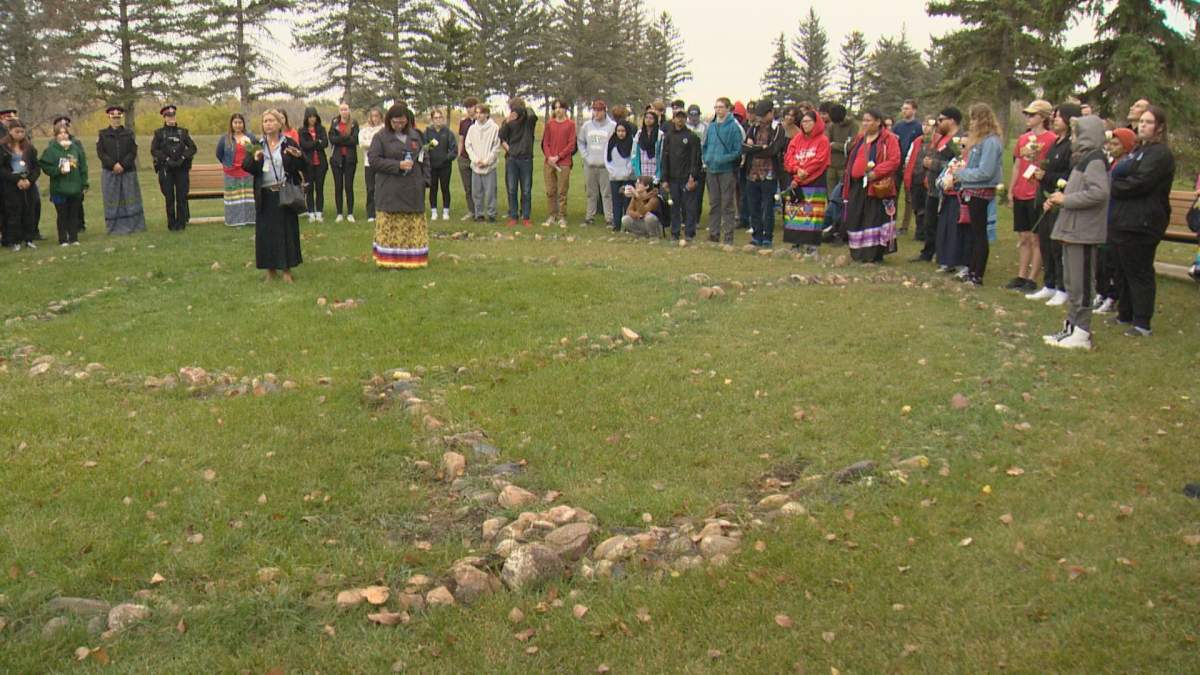In an act of community healing, students, teachers, family members of victims, and more walked the streets of Regina to honour Missing and Murdered Indigenous Women and Girls and two spirited individuals (MMIWG2S).

It marked the third Sisters in Spirt Walk for Healing, where those involved carried white roses, each with the name of a murdered or missing person.
“We recognize there are still loved ones who are missing and those loved ones have not been forgotten,” said Rhonda Fiddler with the Regina Police Service victim services unit.
“And for those who have been murdered, we have not forgotten them either. And for families still seeking justice, we’re here to support them. Know that we walk with them.”
The walk started at the Mâmawêyatitân centre, before making its way to the RCMP Heritage Building.
Among the participants in the walk were students from Greenall High School, who tied ribbons with victims’ names on them to the trees at the reflection garden.
Grade 11 student Kayla Crook said the opportunity to talk to people who have family members missing, was important for her understanding.

Get breaking National news
“The main thing that I’ll walk away with is that while we may not be involved directly with people that are missing, we still have a part to play and share the knowledge that we’ve gained from people with these experiences,” Crook said.
In 2019, a national inquiry into the MMIWG2S crisis found more than six in 10 Indigenous women, girls and gender-diverse people have experienced physical or sexual violence. They are also 12 times more likely to be missing or murdered than non-Indigenous women.
“It’s really tough to realize that there are so many of these names being listed and that each one of them is an individual, a person,” Crook said. “They had a life, and all these family members, all these friends, they have to deal with that person being gone or not knowing where they went.”
For student Mitchell Saunderson, it was the act of tying the ribbon with a name on it that “struck a chord.”
“You’re putting the names of these women who have been missing for ages and been murdered. Indigenous people have been through a lot and it’s a hard subject to talk about.”
For those involved, while the discussion might be difficult, it doesn’t compare to actually having a family member go missing.
“The biggest thing is just to show support,” Fiddler said as she discussed community healing.
“These families who are experiencing this, it’s important for us not to judge based on the person who was murdered or missing and what their life was like,” she went on to say.
“We don’t know their story. We need to remember that they are people first.”










Comments